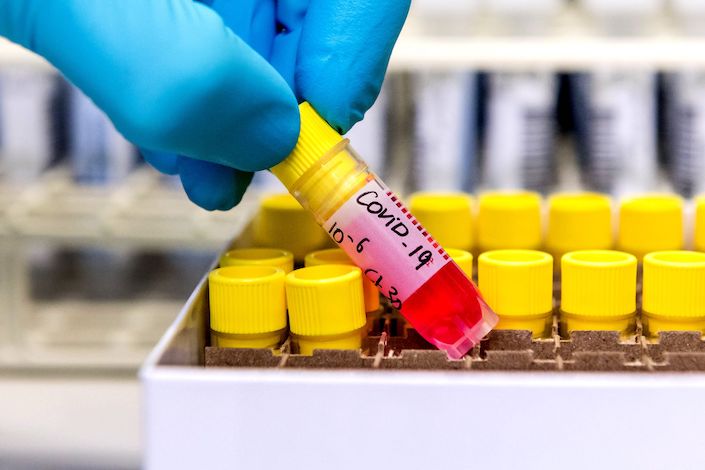Is There a Covid-19 Cure in Neutralizing Antibodies?

 |
As scientists race to develop treatments for Covid-19, neutralizing antibody therapies seem to be on a faster track. The approach promises to be highly effective but entails substantial risks, according to medical researchers.
Chinese biopharmaceutical company Junshi Biosciences is teaming with the Institute of Microbiology at the Chinese Academy of Sciences to develop Covid-19 neutralizing antibodies. The company said it developed a number of neutralizing antibodies, and the preliminary in vitro experiments show they are effective. The next step will be animal experiments, and the company is in discussions with Chinese and foreign drug regulators on entering clinical trials, Junshi said.
Shanghai-based WuXi Biologics in January said it built a team of more than 100 people to develop Covid-19 neutralizing antibodies for production, and the first batch was expected within two months. But the company hasn’t since updated its progress.
A neutralizing antibody is an antibody that can recognize proteins on the surface of a virus and block it from binding with receptors on a cell, said Feng Zhenqing, a researcher at the antibody lab of Nanjing Medical University. Existing vaccines against certain epidemics such as measles and hepatitis induce the human body to produce neutralizing antibodies.
Neutralizing antibodies differ from vaccines, which use antigens to induce the human body to produce antibodies. Neutralizing antibody treatments are directly injected to block the binding of the virus with human cells.
Scientists around the globe are exploring this approach as neutralizing antibodies can specifically target a virus and be highly effective, according to Jiang Shibo of Fudan University, who has long worked on coronavirus therapeutics.
Doctors mainly treat Covid-19 patients using existing drugs designed for other diseases, such as Gilead Sciences’ remdesivir, originally developed to combat Ebola, and chloroquine and hydroxychloroquine, decades-old antimalarial drugs. But none of these existing drugs has a specific anti-coronavirus function, Jiang said.
Treatments based on plasma from recovered patients were used in Wuhan, where the pandemic originated and hit the hardest. New York health officials also plan to begin collecting convalescent plasma as a Covid-19 treatment. Compared with injecting plasma from recovered people into patients still fighting the virus, neutralizing antibodies are safer, Jiang said.
Therapeutic antibodies can be mass produced to ensure large-scale clinical application, Jiang said. Now it’s hard to say whether vaccines or neutralizing antibody therapies will be the first to go into human clinical treatment. Ideally, if researchers can identify highly active neutralizing antibodies and obtain speedy regulatory approval, antibody drugs could be put into use more quickly, Jiang said.
Read more
Caixin’s coverage of the new coronavirus
However, neutralizing antibodies also carry risks. Researchers have found that some antibodies may induce a cytokine storm, an excessive immune response that ravages healthy lung tissue, leading to acute respiratory distress and multi-organ failure.
Screening the highly active neutralizing antibodies is not easy. If the antibodies display low virus-neutralizing activity, they may even harm the human body, Jiang said.
Jiang said it took him about two weeks to screen antibodies from the SARS and MERS viruses, but the Covid-19 virus is harder to screen for highly active antibodies.
Contact reporter Denise Jia (huijuanjia@caixin.com) and editor Bob Simison (bobsimison@caixin.com)

- PODCAST
- MOST POPULAR




